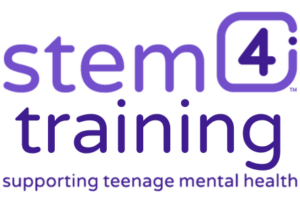A 90-minute introductory session for stem4‘s Online Safety First Aid™ training, aimed at empowering professionals to promote positive mental health in young people in a digital age.
- Enrollment now closed August 31, 2025.
Course format
This course comprises a 90-minute webinar originally recorded with a live audience in Feb 2024.
About this course
Online Safety First Aid (OSFA) equips you with essential knowledge about the online risks that can affect young people, helps you understand how these risks can become harmful, and guides you in aiding young people to recover from online harms.
This training is particularly crucial for supporting young people from disadvantaged groups and communities who are facing mental health challenges.
Join experts Dr. Nihara Krause, Consultant Clinical Psychologist, and Dr. Richard Graham, Consultant Child and Adolescent Psychiatrist, as they explore the impact of social media and the spread of misinformation. Their insights will empower professionals working with young people to understand, assess, and mitigate the effects of online harms.
Key topics include:
- The challenge of finding reliable online support and health information.
- The influence of opinions, influencers, and social pressures in the online world.
Who is this course for?
This course will benefit mental health and social care and youth workers:
- Who want to develop confidence online by being informed of how to negotiate the digital world including an awareness of online harms.
- Who want to learn more about digital skills and competencies.
- To acquire knowledge and better measurement of digital skills.
- To learn about how digital skills and competencies can be impacted by factors associated with social adversity and mental ill health.
- To get to know about young people’s diverse digital experiences and how these vary based on their developmental level.
- To have evidence-based predictions on the complex impact of ICT use and digital skills on young people’s mental health.
- To understand how at-risk individuals (mental health, ethnic or cultural, social economic, gender) can benefit from online opportunities despite their potential risk factors.
- To support professional learning activities with peers and in furthering their digital skills and media literacy.
- To promote digital skills and well-being within their practice.
- To support others who might be involved in vulnerable individual’s lives (for example, parents and carers) by helping them further their digital skills and media literacy.
- To understand the concept of digital resilience and to help build this through the competency framework.
Course feedback
“[Following the training,] I feel more confident about what is out there, along with the positives and the pitfalls, and it will be easier to discuss this with young people.”
“Very informative, I love how it got me thinking about the factors (mental health, development, life transitions, cognitive) that make young people more or less vulnerable or more or less capable of protecting themselves online.”
“Very specific examples made me think of the smaller things that can lead to difficulties in young people’s lives that other training has not.”
“Was accessible, clear to understand and relatable.”
“It was really useful, especially as I am not really on much social media myself.”
Modules
Optional Knowledge Check Quiz
- Enrollment now closed August 31, 2025.

